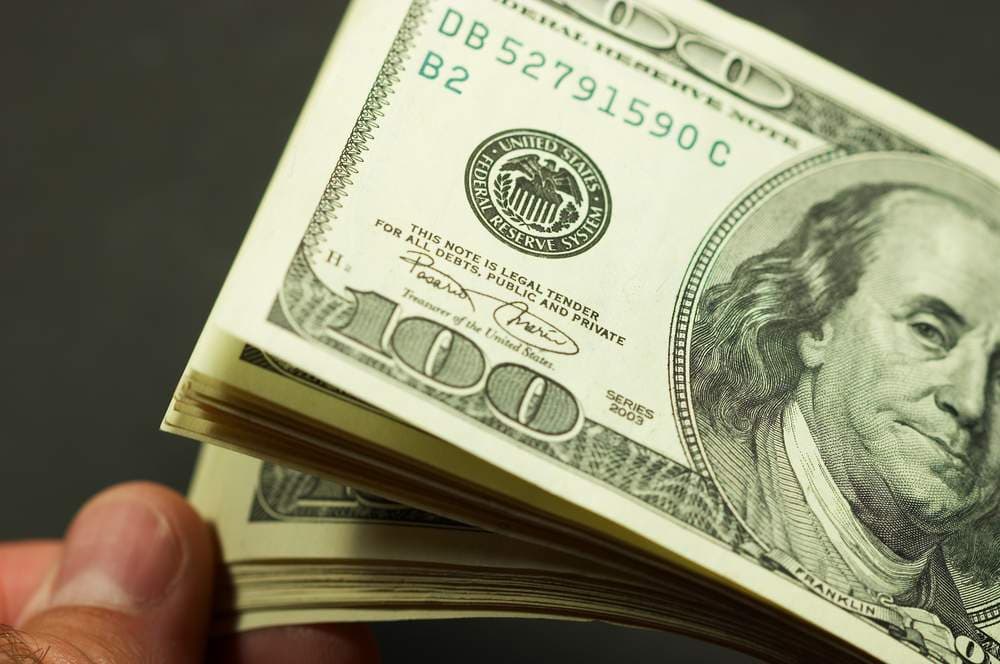Beneath the Surface
Politics, Credit and Debt Make For Strange Bedfellows
January 17, 2025 • 7 minute, 8 second read

“Some debts are fun when you are acquiring them, but none are fun when you set about retiring them.”
—Ogden Nash
January 17, 2025— Next week, Trump swaggers back into the White House, and what’s this? Bernie Sanders — yes, that Bernie Sanders — nodding from the sidelines.
Their unlikely alliance revolves around a new populist darling: capping credit card interest rates. On the surface, it’s a match oozing from a populist Nirvana.
While Trump distracts the press with cabinet appointments and an aggressive plan to realign the Western map, he gets a side-eye approval like he’s fighting for Bernie’s favorite “forgotten Americans.”
Bernie gets to stick it to the banks he’s been railing against since disco was popular.
But, one might ask, why now?
The credit bubble — about which we have been writing until our family members have stopped reading — is showing real thin, ugly stretch marks.
Below, our buddy Lau Vegys, take a look at record credit card delinquencies, business bankruptcies ticking up like clockwork, and margin debt on Wall Street flirting with nosebleed territory.
Consumers owe over $1 trillion in credit card debt, and delinquencies are back to 2008 levels. Meanwhile, corporate America is quietly filing for Chapter 11 at rates not seen since the pandemic. The dominoes are lining up.
Perhaps we’ve margin debt on the brain after writing December’s Grey Swan Bulletin lead comparing the 2024 market with that in 1928. But the parallels of consumer debt and Wall Street speculation are eerily similar.
On Wall Street, margin debt — essentially borrowed money used to gamble on stocks — hit a staggering $645 billion before retreating slightly.
That’s the kind of leverage that makes you wonder if the traders are a little too enamored by the original and are now auditioning for roles in a sequel of The Big Short.
And derivatives? In 2023, the global derivatives market was valued at $28.15 billion.
But remember, derivatives are derived from other asset value. The $5 call option you buy may be based on a $100 stock, valued at $500 and $10,000 per contract. This is known as the notational value.
As of June 2024, the global over-the-counter (OTC) derivatives notional outstanding was $729.8 trillion. Some market analysts estimate the market to be more than 10 times the world’s gross domestic product (GDP).
Enter Trump and Bernie with their populist pitchforks.
“Cap the rates!” they cry, as though that will magically fix an economy built on the house of cards that is debt. Sure, it might give some breathing room to folks juggling minimum payments on cards they maxed out to cover last year’s Christmas or their kid’s TikTok-worthy birthday bash.
Trump’s gotta know the crisis is brewing. His plan to cap credit card rates isn’t about fixing the economy; it’s about managing optics.
If he can keep consumers spending — or at least stave off the worst of the pain until after his term — he’ll consider it a win. Bernie, ever the ideologue, probably thinks this is his chance to claw back some semblance of fairness from the oligarchs.
But both of them are quite rightly, perhaps, ignoring the bigger issue: As much as Americans love their government spending, they’re addicted to personal debt even more. And the economy depends on it.
But, hey it’s Friday. Playoff weekend in the NFL. We can worry about it later. In the meantime, our offices are closed on Monday. We’ll be back Tuesday. ~ Addison
Credit Card Default Wave Hits U.S. Banks
Lau Vegys, Doug Casey’s Crisis Investing
As I’ve said many times, the U.S. government isn’t the only one drowning in a sea of debt—Americans are too. And nowhere is this more evident than with credit card debt.
Recent data from the latest consumer debt report by the Federal Reserve Bank of New York shows that credit card balances hit $1.17 trillion in the third quarter of 2024.
This is the highest balance on record since 1947. As you can see in the graph below, credit card debt surged during the pandemic and has continued climbing ever since—all under the watchful eyes of Biden and Powell.

Card balances aren’t that important if we pay them off at the end of each month—and what we should really be watching are delinquencies.
While that might be the case (with a few caveats), I’ve got some bad news for you. New data is in… And as it turns out, defaults on U.S. credit card loans hit the highest level in 14 years last year. You can see this spike in the chart below.

According to BankRegData, credit card lenders wrote off $46 billion in delinquent loan balances in the first nine months of 2024. Again, this is the highest amount since around the time the global financial crisis wreaked havoc on economies worldwide. It’s also a 50% increase from the year prior.
This puts the final nail in the coffin of the “strong economy” narrative that President Biden’s handlers and Fed Chair Jerome Powell have been pushing. It’s anything but strong…
After years of Fed’s money printing and inflation, the American consumer’s finances are in worse shape than they’ve been in decades. And now, that reality is catching up with them in a major way.
Too Many Canaries in the Coal Mine
Early signs show more and more people are falling behind on their debts. Capital One, the third-largest U.S. credit card lender, said its write-off rate hit 6.1% in November, up from 5.2% last year.
Other major banks like Citibank, JP Morgan Chase, and Bank of America are all reporting massive spikes in delinquencies.
This is bad news for the consumer, but it’s also a big problem for the banks.
Keep in mind, all of this comes at a time when banks are sitting on hundreds of billions in unrealized losses, facing commercial real estate problems, and watching their credit ratings get downgraded left and right (while their shares hover near multi-year lows).
These are all the reasons why the smart money has been fleeing U.S. banks. As I wrote before, Warren Buffett’s Berkshire Hathaway has been systematically pulling out of major banks since early 2020. They’ve completely divested their stakes in Wells Fargo, U.S. Bancorp, JPMorgan Chase, and Goldman Sachs, while drastically reducing their position in Bank of America. And Buffett isn’t alone—Ray Dalio’s Bridgewater Associates and other major investors have been dumping bank stocks en masse.
The upshot is, the banking sector was already buckling under multiple pressures. I’m not saying card defaults will be the final straw, but they’re certainly piling weight onto a camel that’s already struggling to stand.
One last thing…
I’ve recently spoken with a senior banker who has been in the financial industry longer than the Great Financial Crisis. His take is that the surge in credit card defaults isn’t happening in isolation—it’s part of a broader pattern of distress. The American consumer is simply tapped out. That’s why banks are seeing increases in defaults across all types of consumer debt, from auto loans to mortgages to personal loans. This isn’t about financial schemes or out-of-control risk-taking like we saw in 2008—it’s about the brutal reality that American households are struggling to survive.
And that’s what, according to him, makes this situation potentially even more dangerous than the 2007-2008 crisis was. ~ Lau Vegys, Doug Casey’s Crisis Investing
Regards,

Addison Wiggin,
Grey Swan
P.S. “Yeah,” our correspdent CC agrees, “good riddance to Sleepy Joe. Trump may have his issues but there’s no way he can come close to Biden’s idiocy (or rather Kamala, Jill, and the neocons who were “running” things behind the scenes). Definitely one of the worst, most corrupt presidents we’ve ever had, which is saying a lot. Also, I had to laugh at his oligarchy quote.
“Either he’s even more stupid than we thought and lacks any self-awareness, or it’s the usual hypocritical political blah-blah. One look at the system should make it obvious that it’s already an oligarchy and one created by cronyism.”
We also have a number of thoughtful critiques of the impending slate of policies Trump has been leaking to the press. What’s really going to take shape as the cabinet appointees begin to manhandle the executive agencies?
Any thoughts?
As we mentioned, there will be no missive on Monday. But that will give you an opportunity to comment on the end of the Biden era and the reboot of the rudely interrupted Trump era. please send your comments on the Grey Swan to addison@greyswanfraternity.com



